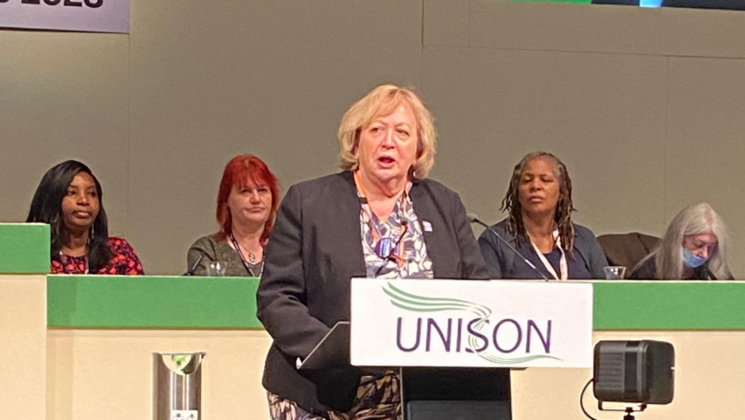In February, UNISON’s National Women’s Conference took place in Bournemouth over a three day period.
There, the South East Region successfully moved a motion titled “The gendered impact of the cost-of-living crisis and what this means for UNISON women”. The motion highlighted the impact the post pandemic cost of living crisis will have on women with combined high inflation rates, across the board price increases and significant income deficit for many through historic and ongoing low wage rises, austerity policies and harsh benefit cuts.
Inflation rates have reached a 40 year record whilst workers are facing severe real terms pay cuts, with public sector workers among the worst affected. Many workers within key sectors such as education are predominantly women and are seeing the biggest falls in pay. Women are statistically far more likely to be reliant on state benefits, and foodbanks, and more likely to be in significant debt due to lower wages and savings all during a period of time where Universal Credit has been cut, the benefits cap is still in place and benefits have only increased by 3.1%.
Our motion also raised that poverty rates are significantly higher among people from Bangladesh (53%), Pakistan (48%) and other Black (40%) and minority ethnic groups than among White people (19%), making it harder to meet rising living costs. Over a third of disabled workers, a high proportion of which are women, are having to cut back on food and heating. Single parents, most of whom are women, have been hit particularly badly by the pandemic and rising costs, with a third in financial difficulty, and 11% in problem debt.
Prior to the pandemic 84% of single parents, reported savings of less than £1,500. Victims/survivors of domestic violence and abuse, including economic abuse, are likely to find it harder to leave an abusive relationship if they are unsure how they will support themselves and their children as living costs rise. Women with ‘no recourse to public funds’, who are excluded from claiming social security benefits are at high risk of poverty, and often destitution, if they lose work, or separate from a partner.
With UNISON’s membership of over 70% women, our motion called for a number of actions, including research about the gendered aspect of the cost of living crises on women, the creation of new resources and toolkits for branches and service groups, to work to better understand the intersectionality of the gendered cost of living crisis, work with the Labour Party to promote these issues, to develop new training for activists to help win improvements in workplaces.
Read more about the impact of the cost of living crisis from the Women’s Budget Group


